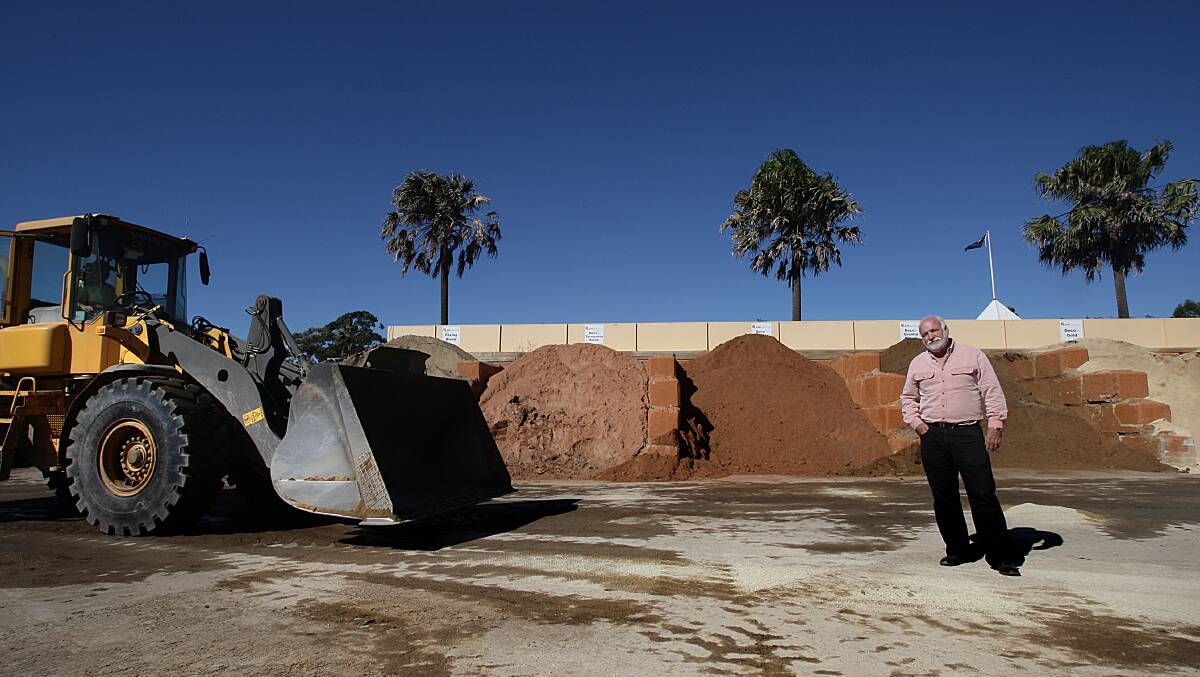
For 18 years, the Cooranbong pong has infuriated residents, and had Lake Macquarie council at loggerheads with composting company Australian Native Landscapes (ANL).
Subscribe now for unlimited access.
or signup to continue reading
But it appears a ruling in the Land and Environment Court could finally bring the long-running dispute to a compromise, with both sides welcoming the verdict of Commissioner Susan Dixon.
For ANL, a development application has been approved that will allow it to continue operating at its Crawford Road site, where the company has been stationed since May, 2000.
And the council has been able to secure a raft of strict consent conditions – several of which ANL opposed – that it hopes will eliminate pollution and a stench that residents have labelled “indescribable”.
“We’re very happy about it,” said ANL managing director Patrick Soars.
“We’ve got the approval so we can move forward. The resolution is we’ve got a legal business here.”
In relation to the conditions, Mr Soars pointed out his company still had the right of appeal.
But a council spokeswoman presented a different view, arguing the parties were at odds over the extent of controls needed to safeguard against pollution.
She said the judgement produced a favourable outcome for the council.
“Council was successful in obtaining conditions requiring a range of environmental controls for the site,” she said.
“These controls include prohibiting use of the existing leachate dam until appropriate environmental measures are implemented.”
In a written judgement, Commissioner Dixon also suggested it was the conditions – and not the DA approval itself – that was at the crux of the matter.
“This is not a case about whether development consent should be granted … but rather, what conditions should be imposed on any consent granted by the court,” it read.
“Parties have provided the court with competing versions of the draft conditions of consent.”
The case can be traced back to development approvals – granted by the council in the late 1980s – for composting at the site, which did not require any measures to stop polluted run-off draining down a slope into the environment.
In 2000, ANL constructed a dam, bunding and overflow area to contain the discharge and bring the facility into line with modern standards.
However over the years there have been persistent complaints from neighbours, who claim they are plagued by foul odours from the site.
In 2015, Lake Macquarie council took the company to court over the alleged odours, in addition to concerns about water and land pollution.
At the hearing, it was discovered there was no DA approval for either the dam, bunding or a wood-chip stockpiling area on the land.
ANL lodged a DA with the council, but it was not approved, on the basis it did not address the odour and pollution problems.
The company appealed to the Land and Environment Court, which granted it the consent this month, but with a series of conditions recommended by the council.
Those included an expanded overflow area for run-off, and operational plans focused on combating odours and water pollution.
The court heard from residents, who alleged there had been in excess of 100 incidents at the site.
“Collectively, the local objectors told me that they have been impacted by offensive odours and noise from the operations on the site over a protracted period of time – and, that they continue to experience substantial adverse odour impacts,” Comissioner Dixon's judgement read.
“They said their repeated complaints … to the EPA about offensive odour and noise from the activities on the site have, in effect, been ignored.”
An NSW EPA spokeswoman denied that was the case, saying it had placed “strict conditions” on ANL’s licence, including managing odour. She said licence was being reviewed and additional conditions would be imposed, if necessary.
“The EPA has investigated and responded to reports of odour, this has involved inspections of the premises at different times of the day and night,” she said.
ANL's lawyers argued that the council’s proposed conditions were unreasonable and invalid, because they were unrelated to the development at hand. They were instead mattes for the EPA to address, under the company’s environmental pollution licence.
However Commissioner Dixon disagreed.
“The council’s draft conditions do quite appropriately include operational conditions focused on controlling adverse odour and water pollution and unacceptable noise,” her judgement said.

